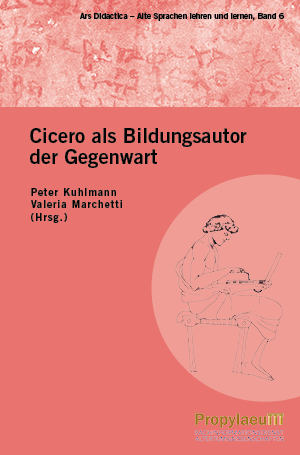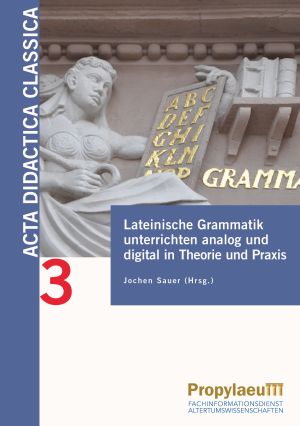Kuhlmann, Peter
Cicero als Bildungsautor der Gegenwart
Cicero’s works are still often used in Latin instruction. In November 2018, a conference organized by the Göttingen Collaborative Research Center ”Education and Religion“ examined the pedagogical value of Cicero’s philosophical works in particular.
The results of that conference are presented here and include contributions from instructors throughout Germany as well as Austria and Italy. These essays pursue both diachronic and synchronic aspects of reading Cicero in the classroom, as well as the significance of Cicero's works as examination texts. They show how Cicero’s works can be considered teaching texts in two ways: While Cicero has a canonical status for Latin teaching today, he also saw himself as an educator in his own day, concerned with cultivating humanitas in his readers.
Lateinische Grammatik unterrichten: analog und digital in Theorie und Praxis
The teaching of Latin grammar in the classroom claims to achieve several goals: supporting language acquisition and being sensitive to inclusion. Teaching grammar should be successful in digital settings as in face-to-face teaching. The following questions have been raised recently: What is an adequate syllabus? Which are the criteria for a reasonable selection? Choosing the suitable introductory method (inductive / deductive) is always important to consider. The articles in this volume address the challenges mentioned and show ways in which Latin grammar can be taught in an effective and motivating manner. These challenges do not only apply to face-to-face teaching, but also to remote learning.








